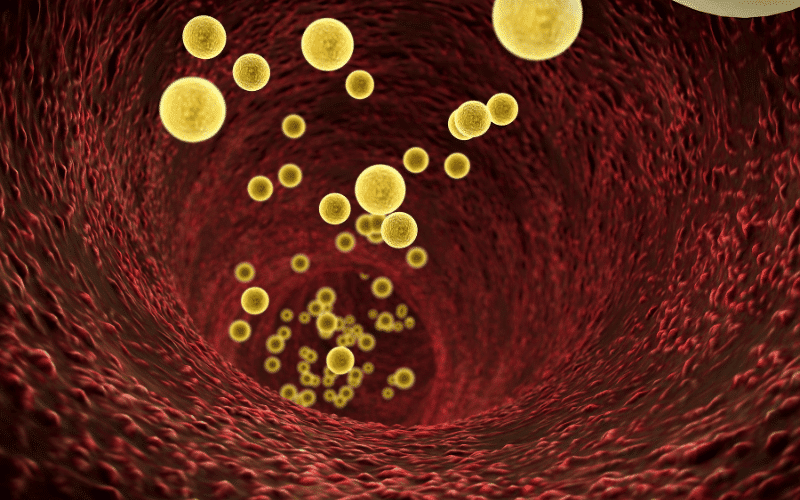3. High Cholesterol: The Fat of the Matter

High cholesterol is our third offender on the list of heart attack causes. It’s a condition that contributes to atherosclerosis, the buildup of fatty deposits in the coronary arteries, which we discussed under CAD.
Cholesterol is a type of fat found in your blood. While it plays essential roles in the body, including aiding in digestion and hormone production, high levels of certain types of cholesterol can lead to plaque buildup in your arteries.
Plaque buildup can result from high levels of low-density lipoprotein (LDL), often referred to as “bad” cholesterol, or low levels of high-density lipoprotein (HDL), or “good” cholesterol. Over time, plaque hardens and narrows the arteries, limiting the flow of oxygen-rich blood to the heart and other parts of the body, and potentially leading to a heart attack.
High cholesterol doesn’t exhibit symptoms in most cases, which can allow the condition to go unnoticed until severe complications arise. A number of factors can increase your risk of high cholesterol: a poor diet high in saturated and trans fats, a lack of physical activity, smoking, obesity, and excessive alcohol consumption are lifestyle factors that can elevate cholesterol levels. In addition, genetics can play a role; if family members have high cholesterol, you could be at risk as well.
Managing high cholesterol often involves making lifestyle changes. These might include adopting a heart-healthy diet that’s low in saturated fats and high in fiber, regular physical activity, maintaining a healthy weight, quitting smoking, and moderating alcohol consumption. Medications may be necessary in some cases, and regular health screenings will ensure that cholesterol levels are adequately monitored. (3)